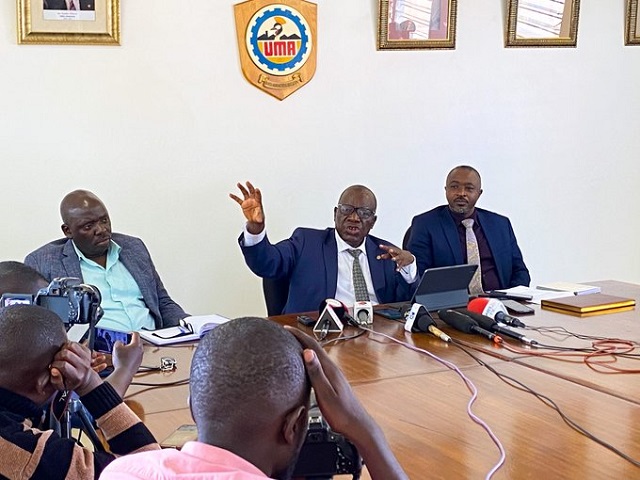The Uganda Manufacturers Association (UMA) supports the Electronic Fiscal Receipting and Invoicing System (EFRIS) but criticizes government agencies for their approach to its implementation.
UMA Chairman, Deo Kayemba, believes that while EFRIS is crucial for accurate tax administration, its abrupt rollout without proper education and sensitization has confused taxpayers and led to resistance from the business community.
EFRIS is designed to manage electronic receipts and invoices in real-time and has the potential to streamline business transactions and improve record-keeping. However, its introduction in Uganda has not been without controversy.

Business operators in Kampala and surrounding areas have protested arguing that it leads to double taxation because many of their goods have already been taxed at the factory or wholesale level. The Uganda Revenue Authority (URA) refutes these claims, stating that VAT applies at every stage of a product’s supply chain, as per the law.
URA maintains that it has been educating taxpayers about EFRIS and engaging with trade associations to address concerns. Commissioner General John Musinguzi highlighted URA’s ongoing efforts to collaborate with businesses and noted that KACITA, a major trade association, recognized URA as the most engaging government body. Despite these efforts, Chairman Kayemba points out that the installation of EFRIS equipment should be URA’s responsibility, and traders who had to install it on their own should receive compensation. He also believes that the system’s implementation should be gradual to allow businesses to adapt.

Additionally, UMA suggests that VAT should only be imposed on businesses with a capitalization of at least $50,000 (about Ugx 191 million), which is the minimum required for a local investor to obtain an investment license. Kayemba also criticizes the 6 million shilling penalty for non-compliant traders, calling it excessive.
He urges authorities to continue discussions with the aggrieved traders to resolve these issues and prevent further disruption of trade.
The situation is further complicated by manufacturers establishing retail outlets, creating unfair competition for smaller traders. While the Competition Act 2023 aims to address such issues, its implementation has been delayed. UMA advocates for setting up a committee to issue regulations to operationalize this law.
Regarding textile taxation, UMA opposes the recent changes to specific duty rates for certain tariff lines. Protesting traders demand an immediate suspension of the $3 and $3.5 tax per kilogram of fabrics and garments, arguing that it makes business unviable.
However, Chairman Kayemba defends the duty, stating that it protects the local textile industry by limiting competition from imports. He praises the 2021 tax amendment, which, he claims, has already spurred increased investment in the local textile industry.









